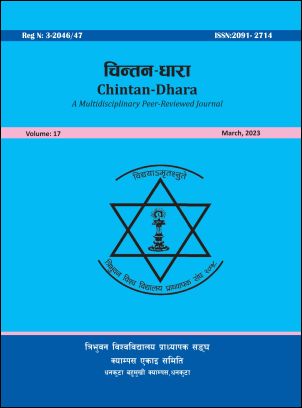Knowledge and Practice of Family Planning in the Danuwar Community at Panchkhal, Kavre
DOI:
https://doi.org/10.3126/cd.v17i01.53259Keywords:
birth spacing, FP methods, permanent sterilization, side effect, temporary contraceptiveAbstract
Family planning (FP) is one of the effective means to control rapid growth of population and to make desirable family size. It helps to maintain good health of mother, child as well as family. But in Nepalese community, the practice of family planning is not easily accepted by all the peoples due to various reasons such as social, cultural, religious, superstition, lack of proper Knowledge of FP, fear of losing health etc. The objective of this study was to identify the knowledge and practices of family planning methods in the Danuwar community at Panchkhal, ward no. 8, Pipaltar, Kavre. A descriptive study design was used for the study. Fifty percent households (99 households) were taken from total one hundred and ninety eight households through simple random Sampling method. The respondents were married Danuwar women aged from 15-49 years. Only one respondent was taken from each sample household. Interview schedules were used to collect the data.
The finding of the study revealed that almost (97.98%) women heard about family planning. However 68.31 percent (male or female) had used FP devices or methods among 99 respondents. They had just used family planning devices or methods suggested by neighbors, friends or imitation of peer group. Most of all the respondent women had side effects of irregular menstruation who had used contraceptive temporary devices. Couples of the Danuwar preferred two numbers of children but the number of children they have borne about more than four because of Socio- belief. Almost all the preferred child was male because they thought that the male children will take-care their parents during their old age. There was not found child birth spacing in the study area. They have borne child almost every year.




